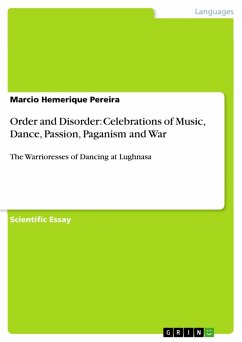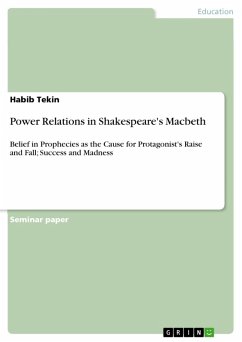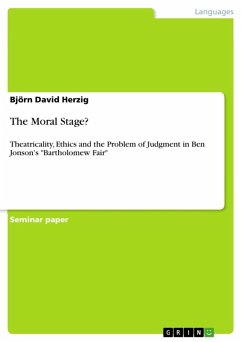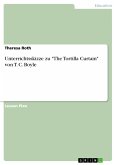Essay from the year 2010 in the subject Didactics - English - Literature, Works, Free University of Berlin (Englische Philologie ), language: English, abstract: In this essay I will argue that one general concept of order and disorder based on binary oppositions does not apply to Shakespeare’s tragedies. Instead it has to give way to a plurality of “orders” and “disorders” or even to the collapse of such a concept. Order can only be deduced from its counterpart and from the characters’ actions to restore it; for instance, on a political or moral level. Order also alludes to the mental order and, respectively, to the mental disorder of the disjointed protagonist. Mental disorder, however, covers a range of “disorders” including Hamlet’s “antic disposition”, Ophelia’s clinical madness, temporal rage and passionate love. The reader has either to accept the absurd situation, in which the disjointed individual attempts to restore his notion of “order” or instead face the fact that clear-cut categories are no longer applicable. This was all the more valid for Shakespeare’s contemporaries, who found themselves in times of transition; a transition from feudal state to the absolutist monarchy of James I, from one religion to another, where the Act of Supremacy of 1534 marked a radical break with Catholic Rome; from the collective identity of the Middle Ages to Renaissance Humanism, which established a self-dependent individual. In this light, Shakespeare’s protagonists do not really seek to restore order, but rather attempt to find some meaning in their disjointed universe and are thus children of their age.









